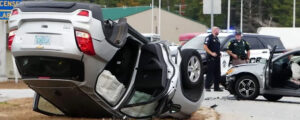Do you want to know what excess in car insurance and how does it work? You are on the right spot to know the answer of this question.
When hiring car insurance, one of the things you must choose is whether you want insurance with an excess or without an excess.
If this is the first time you have taken out insurance, perhaps the franchise concept is completely new to you. Don’t worry, in this post we will tell you what a car insurance deductible is and how it works.
What does Franchise mean in Car Insurance Excess
The car insurance excess is the amount that the driver must assume when he has a mishap with his vehicle. In the event of an accident, this means that the driver will have to pay part of the repair.
See Also:
- Car Insurance With or Without Franchise: Which One is better?
- Rent a Cheap Van in Abbottabad If You are Entrepreneur
- Cargo Vans to Rent in Abbottabad
- Renting vs Buying a Car
- Reason to Rent a Car with Full Insurance
So, what advantage does insurance have for the driver in which the driver partially assumes the costs of any damage to his vehicle?
Well, the fee is cheaper than that of insurance without excess. In fact, the greater the deductible, the greater the discount applied to the initial premium, and vice versa.
With the franchise, insurance companies try to strike a balance: offer an attractive price to customers, but cover their backs in case of parties.
For their part, drivers can save on their insurance policy, but knowing that in the event of an unexpected event they will have to bear part of the costs.
Excess insurance is designed to discourage people from making many claims for minimal damage (such as a broken rear view mirror). Insurance is there for the big claims that a driver probably can’t pay for themselves.
How does the Car Insurance Deductible work?
The insurer and the insured agree on the amount of the excess in the insurance contract. This amount can be a fixed amount or a percentage. The excess will vary depending on the car, the age and the experience of the drivers.
A new driver may have to pay a higher deductible than a more experienced driver, as he is considered a higher risk. While large displacement cars could carry a higher excess than that of a standard make and model.
For example, if the contract includes an excess of 200 USD and the insured sends a part to the insurer for a claim and the repair of the damage amounts to 500 USD.
The invoice will be divided as follows: the insured pays 200 USD and the insurer takes care of the remaining 300.
Let’s look at the same example, but with a percentage deductible of 20%. In this case, the insured pays 20% of the 500 USD, that is, 100 USD, and the insurer pays the rest.
See Also: What is CDW insurance in Car Rental Contracts?
Initially, the excesses were only applied to damage to the own vehicle (the insurance takes care of damage to third parties), but now third-party insurance with excess has also appeared.
This type of policy has an even cheaper fee, but it forces you to take responsibility for part of the damage you may cause to third parties, both to people and their property.
Disadvantages of Excess Insurance
Excess insurance is an interesting option for experienced drivers who do not usually pay insurance. On the contrary, it is an option that can be expensive for novice or accident-prone drivers.
Those who take out franchise insurance do so thinking of not giving any part or giving as little as possible. As is often said, it is insurance that is contracted hoping not to have to use it.
Excess Insurance on Rental Cars
In rental vehicles there is also the figure of excess insurance. The deductible, also known as ‘excess’, is the amount of money assumed by the lessor of the insured vehicle in the event of loss or accident. This policy covers the lessor for that liability, subject to the terms.
For example, if the insurance sets an excess of 250 USD and the car suffers damage for a repair cost of 400 USD, the insured is obliged to pay the first 250 USD of the repair, while the insurer will take care of the rest.
Car rental companies usually offer a basic guarantee service in which the main driver (the person who registers as the main driver when renting the car) has all-risk insurance with excess.
This means that in the event of an accident or problem, the insured is obliged to pay part of the damage to the vehicle.
See Also: Reason to Rent a Car with Fully Comprehensive Insurance
This basic insurance can be extended to comprehensive insurance without excess, but this means a large increase in price.
Once again, the insured would have to choose between assuming a high cost for giving up the excess or keeping the excess insurance and exposing himself to the risk of suffering a mishap and having to take over the excess.







